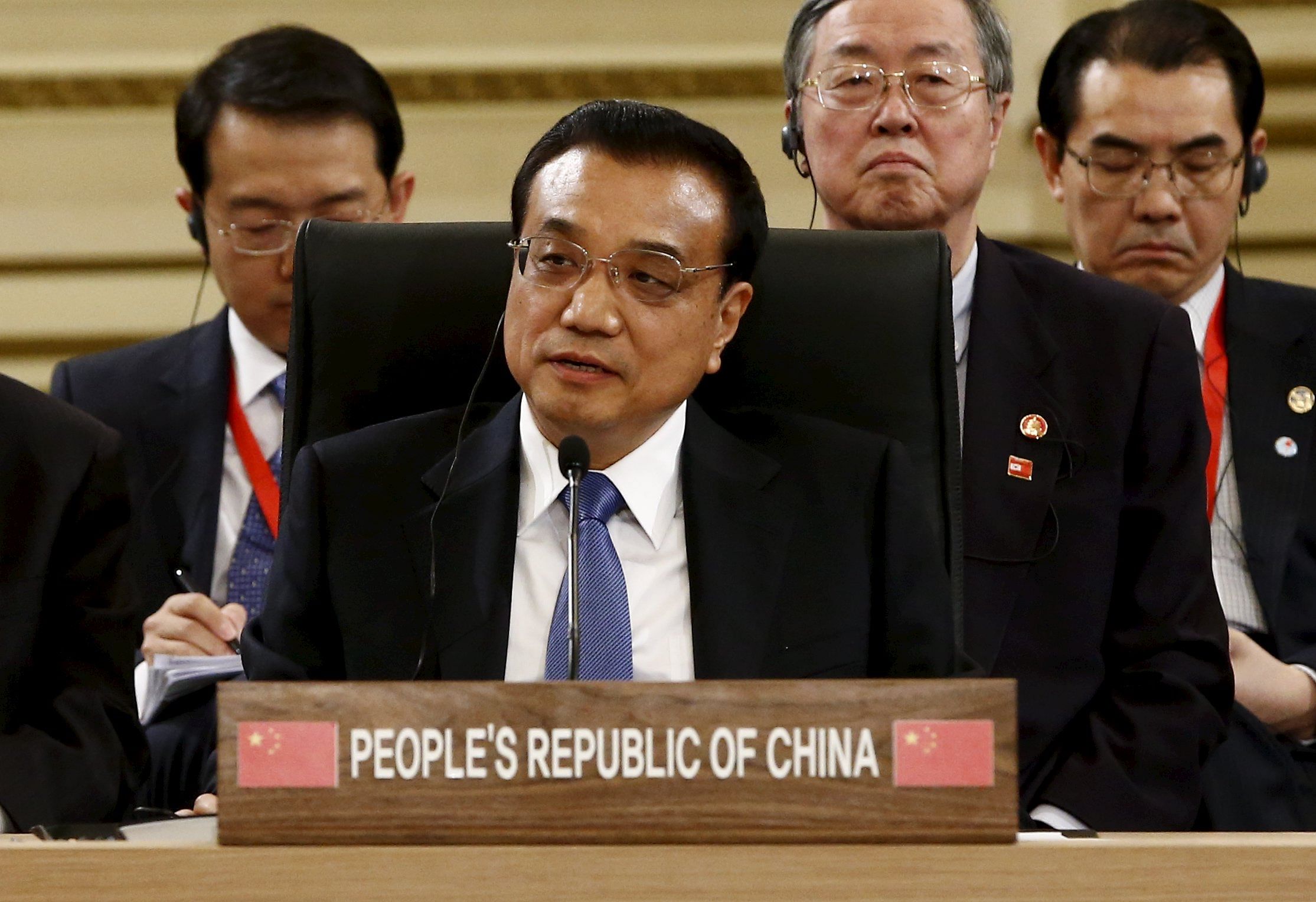Leaders of South Korea, Japan and China called for greater trilateral cooperation in trade and security on Sunday (Nov 1) and agreed to face up to history.
They also urged more efforts in resuming six-party talks aimed at denuclearising North Korea and promoting peace in North-east Asia.
A joint statement said that trilateral cooperation has been "completely restored" during this summit and the three leaders will continue to meet every year. Here's a look at how the international media reported the meetings, and other bilateral talks:
Japan, China, S. Korea focused on economy

(THE JAPAN NEWS/ASIA NEWS NETWORK) - The first meeting between the leaders of Japan, China and South Korea in more than three years was marked by a focus on economic issues and an effort to maintain a harmonious mood.
China and South Korea, which have seen their economic situations deteriorate, agreed to the summit meeting by attaching importance to economic cooperation with Japan. However, they still see several historical issues as an avenue for checking Japan - although Prime Minister Shinzo Abe called for "normalizing the process of cooperation" between the three countries.
"All three of our nations have a saying that goes, 'The ground gets harder after it rains,'" South Korean President Park Geun Hye said at a dinner after chairing the meeting. In other words, relationships get stronger after a quarrel.
Abe, Li agree to promote high-level exchanges

(THE JAPAN NEWS/ASIA NEWS NETWORK) - Prime Minister Shinzo Abe and Chinese Premier Li Keqiang on Sunday agreed to promote high-level exchanges between the two countries, including the resumption of mutual visits of foreign ministers, to foster the strained Japan-China relationships.
During a meeting that lasted about an hour at a Seoul hotel, the two leaders also agreed that the two countries would make efforts on establishing a maritime liaison mechanism, an emergency contact system to prevent accidental clashes between Japanese and Chinese ships and planes, so that that the system can be operated at an early stage.
Japan's attitude key to ties with South Korea, China

(THE KOREA HERALD/ASIA NEWS NETWORK) - On the surface, the gathering of the leaders of South Korea, China and Japan in Seoul seemed to have achieved their primary goal - restoring the three-way cooperation that had stalled dues to historical territorial disputes for more than three years.
President Park Geun Hye declared after hosting talks with the Chinese and Japanese leaders Sunday that the three countries have "fully" restored their trilateral cooperation through the Seoul summit.
Economic cooperation topped the leaders' agreement to boost cooperation: They agreed to accelerate work for a three-way free trade agreement and for inclusion in the 16-nation Regional Comprehensive Economic Partnership. What is noteworthy is that they decided to integrate the three countries into a single digital market by pulling down e-commerce barriers.
A hopeful step calls for substantial follow-ups

(CHINA DAILY/ASIA NEWS NETWORK) - As anticipated, the first summit meeting between the leaders of China, Japan and the Republic of Korea after a three-year hiatus produced no surprises.
The joint communiqué, comprehensive as it is, presents little more than a shared willingness to work together and find a way out of the diplomatic ice age debilitating Northeast Asia.
Indeed, this short summit was more about atmosphere than about technicalities.
Deal with history responsibly, Li urges Abe

(CHINA DAILY/ASIA NEWS NETWORK) Premier Li Keqiang has urged Japan to properly tackle the issue of history "in a responsible manner" and to "undertake positive policies toward China".
He made the comments when meeting with his Japanese counterpart Shinzo Abe for the first time in his capacity as premier on Sunday in Seoul.
Mr Li made calls for "nurturing mutual trust" and "deepening pragmatic exchanges and cooperation" during the meeting.
Leaders can set an example for improving ties

(CHINA DAILY/ASIA NEWS NETWORK) The trilateral meeting between the leaders of China, Japan and Republic of Korea on Sunday has given us optimism, though cautious, about reconciliation in East Asia.
Shigeo Iwatani, a veteran Japanese diplomat and former secretary-general of the Trilateral Cooperation Secretariat, believes that frequent meetings will help buildup the personal relations between Chinese and Japanese leaders. Based on improved personal trust, the two countries can then discuss pending issues or, even better, might find solutions to them.
Mr Iwatani's words remind me of the chemistry that first led to a better relationship between China and Japan. The friendly personal connections paralleled the friendly bilateral relations. China and Japan got along for a decade when they managed their differences well.
Japan, S. Korea to continue talks on 'comfort women'

(THE JAPAN NEWS/ASIA NEWS NETWORK) - Prime Minister Shinzo Abe had his first official bilateral meeting with South Korean President Park Geun Hye on Monday morning at the Blue House in Seoul.
The meeting lasted for about an hour and 45 minutes. Afterward, Abe told the press that he intends to continue talks with South Korea regarding so-called comfort women, a key issue between the two countries.
"We have agreed to accelerate talks to reach an agreement as soon as possible," Abe said.

